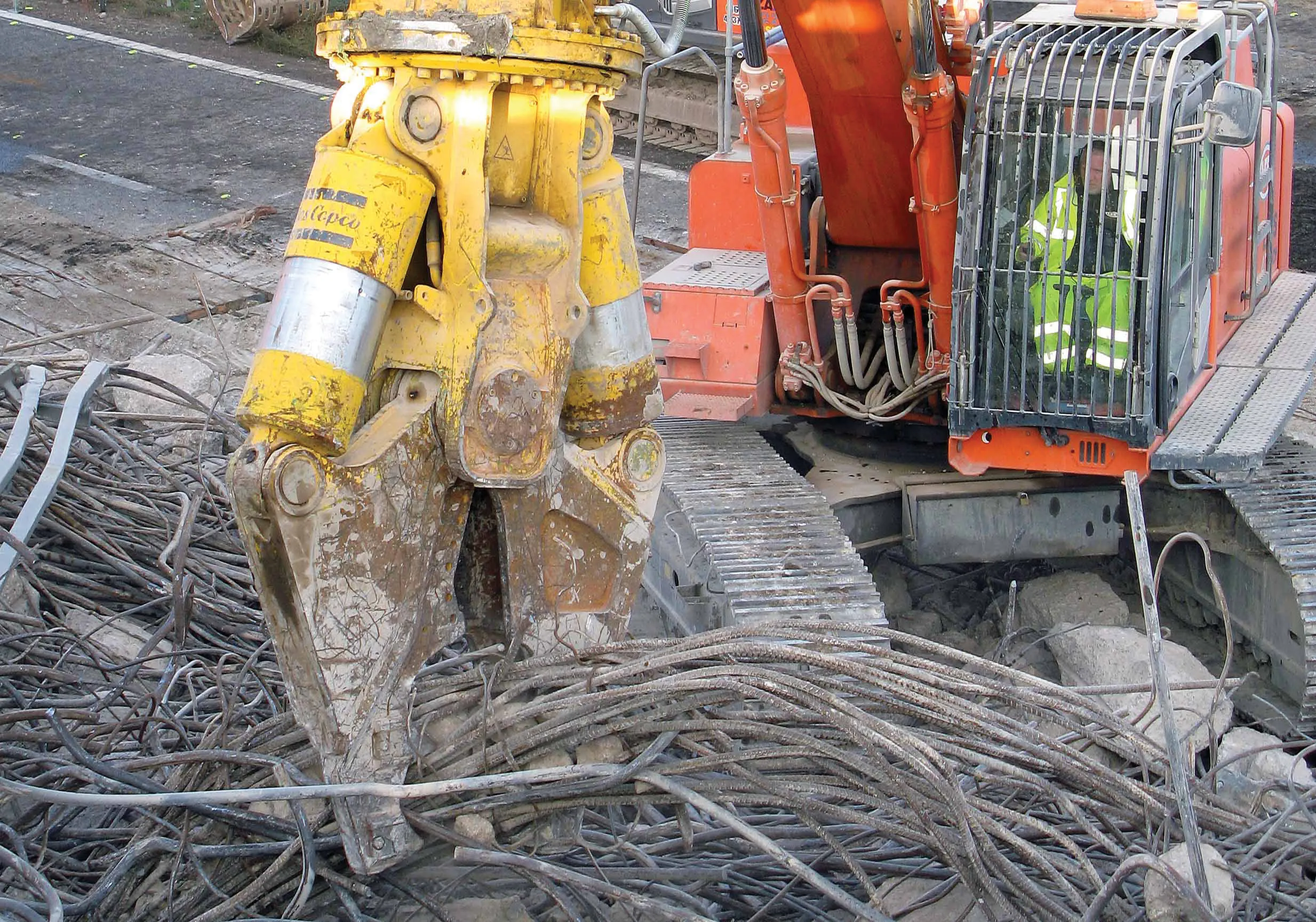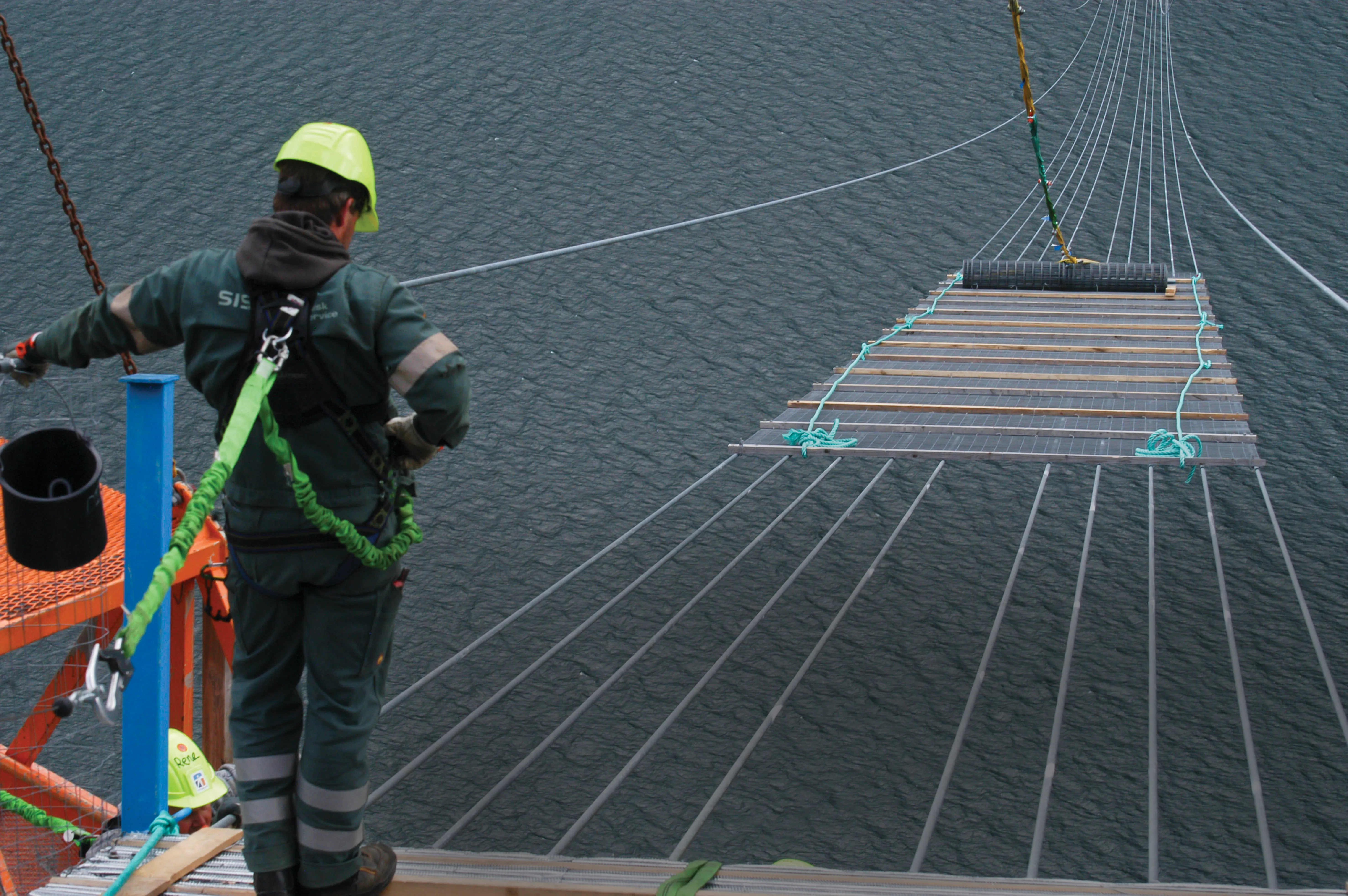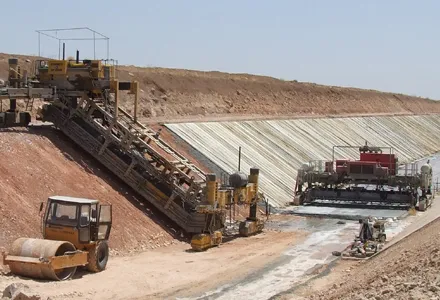Heavy hydraulic breakers and a six-tonne combi cutter from Atlas Copco is said to have played a key part in enabling Armac to complete the demolition of the former Catthorpe motorway interchange viaduct within the 36 hours prescribed by the Highways Agency. Bridge dismantling experts Armac deployed no fewer than 10 Atlas Copco hydraulic breakers – six HB 4200, two HB 5800 and two HB 7000 units – to dismantle the 5,500tonne, 85metre long structure. In addition, Armac also used an Atlas Copco CC 6000 hydrauli
June 18, 2012
Read time: 2 mins

Heavy hydraulic breakers and a six-tonne combi cutter from 161 Atlas Copco is said to have played a key part in enabling Armac to complete the demolition of the former Catthorpe motorway interchange viaduct within the 36 hours prescribed by the 2309 Highways Agency.
Bridge dismantling experts Armac deployed no fewer than 10 Atlas Copco hydraulic breakers – six HB 4200, two HB 5800 and two HB 7000 units – to dismantle the 5,500tonne, 85metre long structure. In addition, Armac also used an Atlas Copco CC 6000 hydraulic combination cutter to demolish the concrete and cut the 32 – 50mm rebar that reinforced the viaduct.
To allow the viaduct, which formerly carried the M6 southbound traffic over the M1 on the Warwickshire/Leicestershire border, to be demolished and removed, it was necessary to close both the M6 and the M1 in the vicinity of the work, so any overrun would have been costly and hugely disruptive to traffic flows over a wide area.
“We were happy to rely on Atlas Copco equipment for this high-profile and time-critical project,”says Noel McLean, contracts director at Armac. “This confidence was completely justified – all of Atlas Copco’s equipment performed faultlessly throughout the project, despite being used intensively and almost continuously.”
To prevent hold ups due to equipment problems during the demolition, Atlas Copco supplied a stock of critical spares to be held on site. None of the spares were needed, but their availability on site was said to provide additional insurance against the possibility of delays.
Such was the perceived success of Atlas Copco’s on-loan CC 6000 combi cutter, Armac is said to be giving serious consideration to purchasing one of these units for use on similar future projects.
Bridge dismantling experts Armac deployed no fewer than 10 Atlas Copco hydraulic breakers – six HB 4200, two HB 5800 and two HB 7000 units – to dismantle the 5,500tonne, 85metre long structure. In addition, Armac also used an Atlas Copco CC 6000 hydraulic combination cutter to demolish the concrete and cut the 32 – 50mm rebar that reinforced the viaduct.
To allow the viaduct, which formerly carried the M6 southbound traffic over the M1 on the Warwickshire/Leicestershire border, to be demolished and removed, it was necessary to close both the M6 and the M1 in the vicinity of the work, so any overrun would have been costly and hugely disruptive to traffic flows over a wide area.
“We were happy to rely on Atlas Copco equipment for this high-profile and time-critical project,”says Noel McLean, contracts director at Armac. “This confidence was completely justified – all of Atlas Copco’s equipment performed faultlessly throughout the project, despite being used intensively and almost continuously.”
To prevent hold ups due to equipment problems during the demolition, Atlas Copco supplied a stock of critical spares to be held on site. None of the spares were needed, but their availability on site was said to provide additional insurance against the possibility of delays.
Such was the perceived success of Atlas Copco’s on-loan CC 6000 combi cutter, Armac is said to be giving serious consideration to purchasing one of these units for use on similar future projects.







